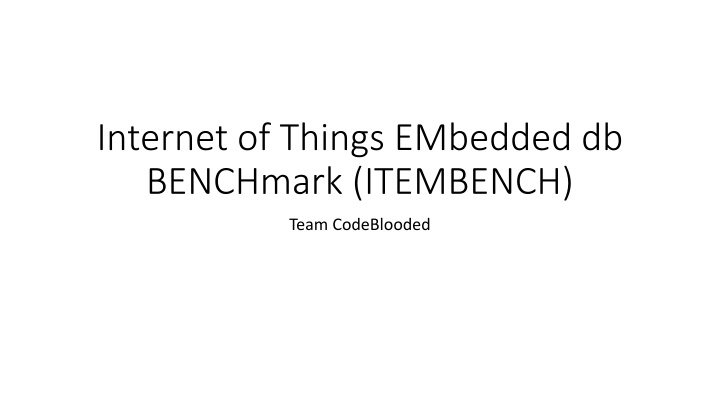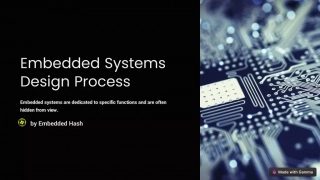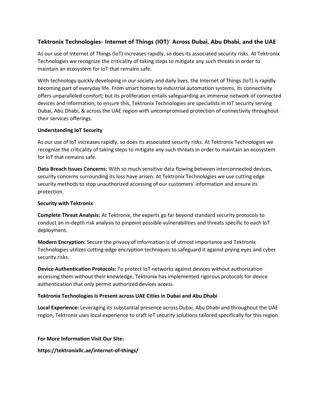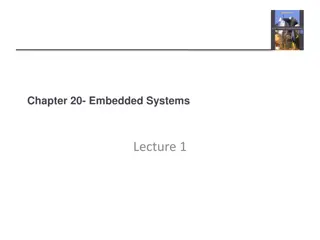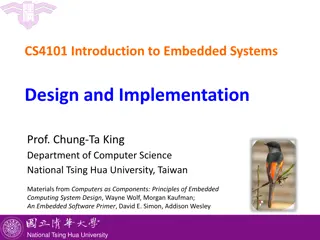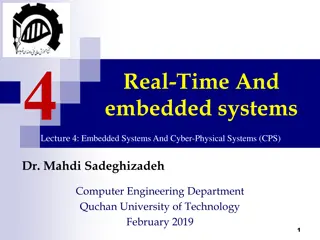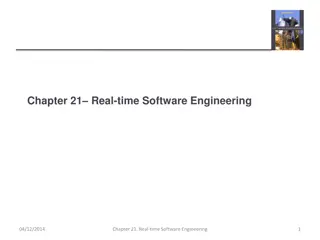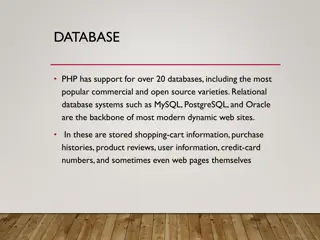Internet of Things Embedded Database Benchmarking
This content discusses benchmarking of embedded databases in the Internet of Things (IoT) realm. It covers various workloads, results, observations, and recommendations for enhancing performance and memory usage. The benchmark results compare SQLite, H2, HSQLDB, and Derby databases across write-only and authentication workloads, highlighting differences in running time, CPU consumption, and memory usage
Download Presentation

Please find below an Image/Link to download the presentation.
The content on the website is provided AS IS for your information and personal use only. It may not be sold, licensed, or shared on other websites without obtaining consent from the author.If you encounter any issues during the download, it is possible that the publisher has removed the file from their server.
You are allowed to download the files provided on this website for personal or commercial use, subject to the condition that they are used lawfully. All files are the property of their respective owners.
The content on the website is provided AS IS for your information and personal use only. It may not be sold, licensed, or shared on other websites without obtaining consent from the author.
E N D
Presentation Transcript
Internet of Things EMbedded db BENCHmark (ITEMBENCH) Team CodeBlooded
Taxonomy RFID (HOPE AMD Dataset) Logging of Positions Authentication Notification Smart Notification Room Allocation Crowd Sensing Thermostat
Benchmark Modules Runner Test SimpleTest MultiTest Workloads Write-Only Workload Authentication Workload Notification Workload Smart Notification Workload
Benchmark Modules Data Generator Series Random Zipfian Database Connector (JDBC) SQLite H2 HSQLDB Derby
Write-Only Workload Results Throughput Latency Overall Runtime 10000 0.13 19000 18500 0.125 9500 18000 Operations/sec 0.12 17500 Milliseconds 9000 Milliseconds 17000 0.115 8500 16500 0.11 16000 8000 15500 0.105 15000 7500 0.1 14500 7000 0.095 14000 SQLite H2 HSQLDB Derby SQLite H2 HSQLDB Derby SQLite H2 HSQLDB Derby Databases Databases Databases CPU Usage Memory Usage 31.00% 4000000 3900000 30.00% 3800000 29.00% 3700000 28.00% Percentage Kilobytes 3600000 27.00% 3500000 26.00% 3400000 25.00% 3300000 24.00% 3200000 23.00% 3100000 22.00% 3000000 SQLite H2 HSQLDB Derby SQLite H2 HSQLDB Derby Databases Databases
Authentication Workload Results Throughput Latency Overall Runtime 4000 4 250000 3500 3.5 200000 3000 3 Operations/sec milliseconds 2500 2.5 milliseconds 150000 2000 2 1500 1.5 100000 1000 1 500 0.5 50000 0 0 SQLite H2 HSQLDB Derby SQLite H2 HSQLDB Derby 0 Databases Databases SQLite H2 HSQLDB Derby Databases CPU Usage Memory Usage 27.50% 4300000 4200000 27.00% 4100000 4000000 26.50% 3900000 Percentage kilobytes 26.00% 3800000 3700000 25.50% 3600000 25.00% 3500000 3400000 24.50% 3300000 3200000 24.00% SQLite H2 HSQLDB Derby SQLite H2 HSQLDB Derby Databases Databases
Benchmark Result Observations Write-Only Workload SQLite takes more running time but consumes less CPU and memory. HSQLDB had best times but consumed more CPU and memory. Authentication Workload Close call between H2 and HSQLDB. HSQLDB had the best times and relatively consumed less CPU and memory. Derby consumed a lot of memory.
Closing Stage Research on IoT Workload for Data Centers. Improve/Add features to benchmark implementation Isolate exact memory usage by embedded dbs. Smart Notification Workload implementation.
